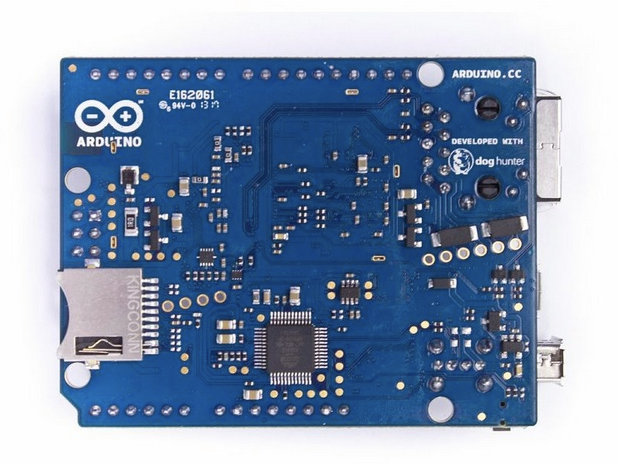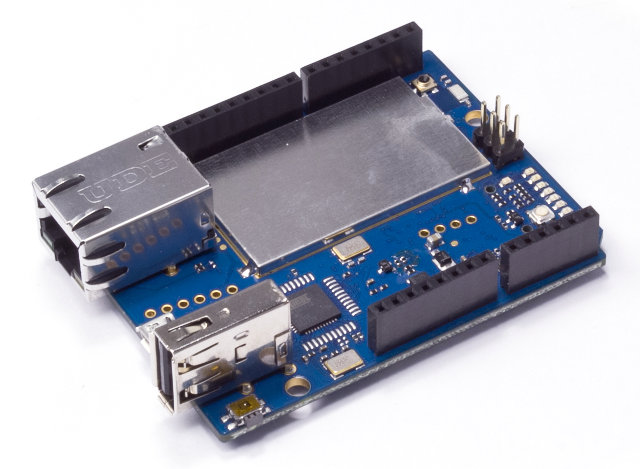Massimo Banzi announced the Arduino Yún, the first of a family of Wi-Fi products combining Arduino with Linux, at the Maker Faire Bay Area. The company used the name Yún (), meaning “cloud” in Chinese, as the purpose of this board to allow connection to web services directly from Arduino.
Arduino Yun Specifications:
- MCU – Atmel ATMega32u4 @ 16 MHz (same as the one used in Leonardo board) with 2.5KB SRAM and 32KB flash
- SoC – Atheros AR9331 MIPS-based Wi-Fi SoC running Linino, Arduino’s own Linux distribution based on OpenWRT. It’s the same chipset as in TP-Link WR703N router.
- Storage – microSD card slot
- USB – micro USB connector + full USB host port
- Connectivity – Ethernet + Wi-Fi
- 14 digital input/output pins (of which 7 can be used as PWM outputs and 12 as analog inputs)
 Arduino Yún ATMega32u4 can be programmed as a standard Arduino board by plugging it to your computer with the micro USB connector, or via Wi-Fi.
Arduino Yún ATMega32u4 can be programmed as a standard Arduino board by plugging it to your computer with the micro USB connector, or via Wi-Fi.
The company explains that during Yún first boot, it acts as an Access Point, and creates “Arduino” Wi-Fi network. So you can simply open its configuration page into your browser, and set-up the Wi-Fi network name, security type, and password.
Arduino created a Bridge library which delegates all network connections and processing of HTTP transactions to the Atheros chip running Linux, so you can link the Atmel MCU to Linux, launching programs and scripts, passing them parameters (sensor readings for example) and reading their output with your own sketches. Since Linino is a customized version of OpenWRT, shell and Python scripts are supported out-of-the-box, and you can install open source software and tools that are already working in OpenWRT.
Over one hundred APIs will be available thanks to Temboo, and developers will have access to multiple platforms such as Twitter, Facebook, FedEx or PayPal, from a single point of contact.
Arduino Yún should be available at the end of June for 69$.

Jean-Luc started CNX Software in 2010 as a part-time endeavor, before quitting his job as a software engineering manager, and starting to write daily news, and reviews full time later in 2011.
Support CNX Software! Donate via cryptocurrencies, become a Patron on Patreon, or purchase goods on Amazon or Aliexpress





